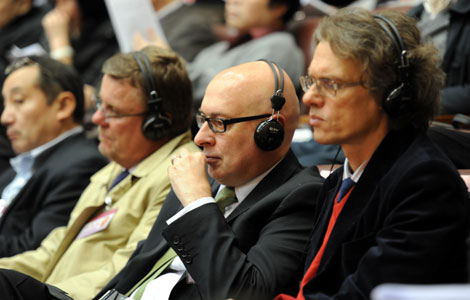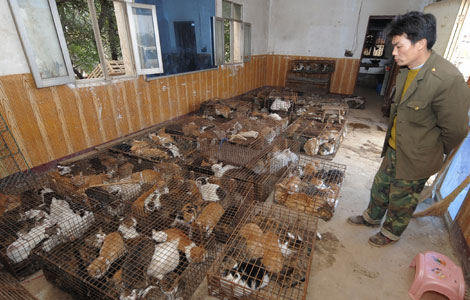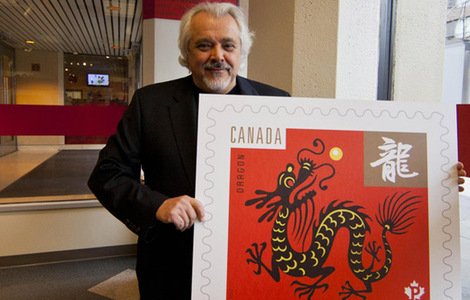Beijing to put clean-air plan into action
Updated: 2012-01-13 07:56
By He Dan (China Daily)
|
|||||||||
BEIJING - This year, Beijing will focus on air quality through measures such as improving pollution monitoring and reducing the density of major pollutants at construction sites by 2 percent on average, Beijing Mayor Guo Jinlong said Thursday.
As part of the drive to raise awareness of pollution, the city will begin publishing air quality data.
Furthermore, Beijing has set a goal to recycle 150,000 old cars that cause heavy air pollution and replace coal-fired boilers with clean energy to provide heating, Guo said while making an annual work report to the Beijing Municipal People's Congress, the city's legislature.
He stressed that Beijing will try to solve the air pollution problem with "greater determination, more effective measures and higher standards".
The municipal government will allocate 2.1 billion yuan ($332.4 million) to tackle air pollution and other work related to energy conservation and emissions reduction, according to a public spending budget released by the Beijing Finance Bureau on Thursday.
Members of the 11th Chinese People's Political Consultative Conference (CPPCC) Beijing Committee, which opened its session Tuesday, were invited to listen to the report on Thursday and give suggestions.
Zhu Liang, an engineer and a Beijing CPPCC member, applauded the government's efforts to fight air pollution.
Zhu appealed to the municipal government to establish more monitoring spots to map out the exact air quality situation in different districts. To date, there are 27 air-quality monitoring stations across Beijing.
Moreover, the PM 2.5 standard, which measures particles smaller than 2.5 microns in the air, should be included in the air pollution index and publicized hourly to the public, he stressed.
Lee Yuk Lun, chairman and CEO of the Hong Kong-based Rising Development Holdings, Ltd, who is also a delegate to the Beijing CPPCC, urged the authorities to charge environmental protection fees on vehicles to dampen people's enthusiasm for buying cars.
There were about 5 million cars in Beijing as of the end of 2011, Beijing Daily reported without citing the source.
"Whenever you walk on the streets in Beijing, you can see cars emitting dark gas and a strong smell. Cars are responsible for about 50 percent of the harmful particles in the air," Lee wrote.
Pang Hong, a member from the Hong Kong and Macao Delegation, proposed a "green travel plan".
Pang said he plans to donate about 7,000 bicycles to all universities in the capital city, which will encourage college students to ride bikes instead of driving cars on campus.
- Inflation drop may see shift in govt policy
- Spokespersons for religious groups
- Housing policy to continue in capital
- China doubles reward for gunman
- Iranian nuke scientist killed in blast
- Premier Wen looks at the big picture
- Officials visit man jailed in ROK
- Wen urges US to respect China's core interests
Hot Topics
Kim Jong-il, Mengniu, train crash probe, Vaclav Havel, New Year, coast guard death, Internet security, Mekong River, Strait of Hormuz, economic work conference
Editor's Picks

|

|

|

|

|

|







